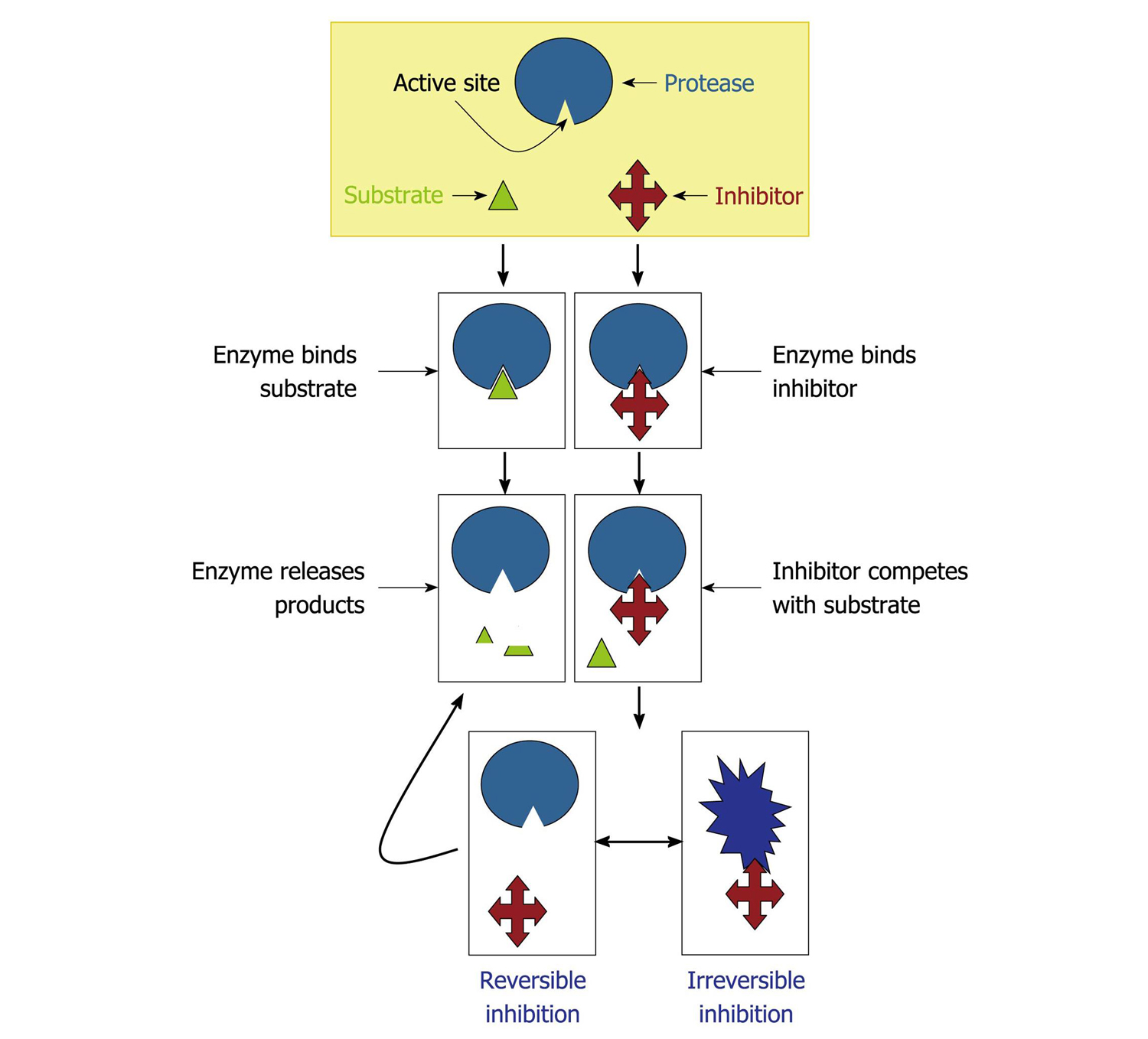Protease inhibitors (PIs) are a class of antiviral drugs used primarily in the treatment of HIV/AIDS and, in some cases, hepatitis C. These drugs block the activity of protease, an enzyme that the virus needs to replicate within the body. Here’s an overview of their effectiveness, side effects, and special precautions:
Effectiveness of Protease Inhibitors:
- HIV Treatment: Protease inhibitors are highly effective in reducing the viral load of HIV and improving immune function. When used as part of combination antiretroviral therapy (ART), they can help suppress the virus to undetectable levels.
- Hepatitis C: Some protease inhibitors, such as telaprevir and boceprevir, are used in the treatment of hepatitis C, often in combination with other antiviral medications.
- Drug Resistance: Like other antiretroviral medications, the effectiveness of protease inhibitors can be compromised by drug resistance if not taken consistently and according to medical guidance.

Common Protease Inhibitors:
HIV:
- Atazanavir (Reyataz)
- Darunavir (Prezista)
- Lopinavir/ritonavir (Kaletra)
- Ritonavir (Norvir)
- Saquinavir (Invirase)
- Tipranavir (Aptivus)
Hepatitis C:
- Simeprevir (Olysio)
- Glecaprevir (Mavyret)
Side Effects of Protease Inhibitors:
Protease inhibitors can cause a range of side effects, and the severity can vary depending on the specific drug and individual response. Some common and serious side effects include:
1. Gastrointestinal Issues:
- Nausea, vomiting, diarrhea, and abdominal pain.
2. Liver Problems:
- Elevated liver enzymes, hepatitis, and jaundice, especially with certain protease inhibitors. Liver function tests should be regularly monitored.

3. Metabolic Changes:
- Lipodystrophy (abnormal fat distribution), including fat accumulation in the abdomen and face, and fat loss in the arms and legs.
- Insulin resistance, hyperglycemia, and an increased risk of diabetes.
- Elevated cholesterol and triglyceride levels, contributing to an increased risk of cardiovascular disease.
4. Cardiovascular Risks:
- Some protease inhibitors (especially those that boost their own levels with ritonavir) may increase the risk of heart disease due to their effects on lipid metabolism.
5. Kidney and Bone Health:
- Kidney problems and kidney stones are a risk, particularly with certain PIs like indinavir.
- Bone thinning or osteoporosis may occur with long-term use.
6. Rash:
- Skin rashes are a common side effect, which may range from mild to severe.
7. Drug Interactions:
- Protease inhibitors can interact with a variety of other drugs, including other antiretrovirals, medications for seizures, and antifungal drugs, due to their effect on liver enzymes (CYP450 system). These interactions can increase or decrease the effectiveness of the drugs and lead to adverse reactions.
Special Precautions with Protease Inhibitors:
- Liver Disease: People with pre-existing liver conditions (such as hepatitis) need careful monitoring when taking protease inhibitors, as these drugs can worsen liver function.
- Pregnancy: Some protease inhibitors, such as atazanavir and darunavir, are considered relatively safe during pregnancy, though medical advice and close monitoring are essential. Ritonavir is often used in pregnancy, but always under healthcare supervision.
- Kidney Problems: Patients with a history of kidney disease should be monitored for signs of renal dysfunction, especially when using certain protease inhibitors like indinavir.
- Adherence: Adherence to the prescribed regimen is crucial. Missing doses or stopping treatment can lead to drug resistance and treatment failure.
- CYP450 Interactions: Protease inhibitors inhibit the cytochrome P450 enzyme system in the liver, so they can interact with other medications metabolized by the same system. This requires dose adjustments and careful monitoring to avoid toxicity or therapeutic failure.

Management of Side Effects:
- Gastrointestinal Symptoms: Taking protease inhibitors with food can help reduce nausea and other gastrointestinal issues. If side effects persist, adjusting the dose or switching medications may be necessary.
- Metabolic Effects: Lifestyle changes, such as a healthy diet and regular exercise, can help manage lipid and glucose changes. Statins and other medications may be prescribed to manage cholesterol or blood sugar.
Regular monitoring by a healthcare provider is essential to manage these potential side effects and ensure that the treatment remains effective.
